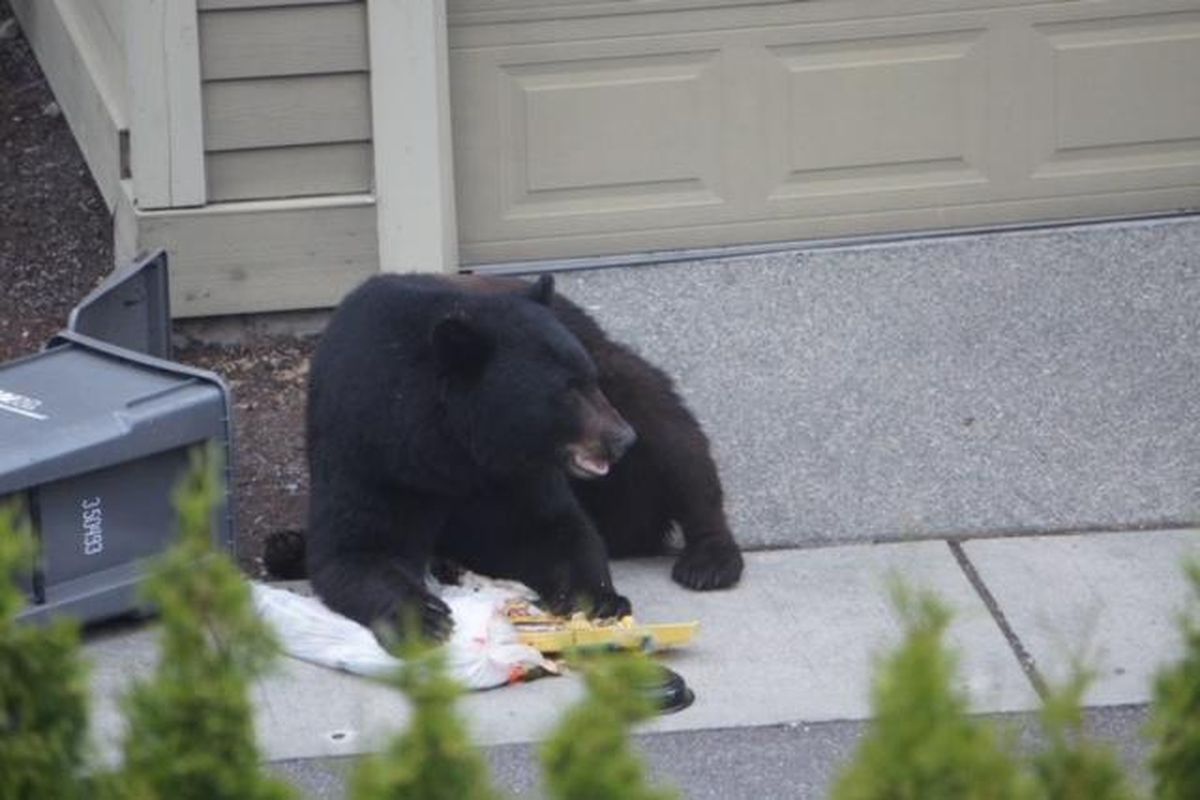Scrounging for trash, bears along the I-90 corridor are getting fat and dying

The bears are fat. And they’re dying young.
“A whole bunch of bears are taking advantage of these food resources and it’s resulting in their death,” said Rich Beausoleil, the Washington Department of Fish and Wildlife statewide bear and cougar specialist.
The bears aren’t dying because they’re obese. Instead, they’re being shot or hit by cars while scrounging for trash.
WDFW is five years into a study of bears in the Cascades living near the I-90 corridor. Preliminary findings indicate many of these bears are overweight and dying young.
Bears living in the wild generally live between six and eight years, Beausoleil said. However, WDFW researchers have found bears living near people “rarely live beyond three.”
The primary reason for the early deaths? People shoot the loitering bears, Beausoleil said. Some are also hit by cars.
As for the extra weight Beausoleil said most bears living near humans weigh 100 to 150 percent over their normal weight.
“We’ve seen 10-month-old cubs who should be 30 to 40 pounds, but when they’re around people they can get up to 130 pounds,” he said.
Adult females weigh 150 pounds in the wild. Near humans they are closer to 300 pounds. As for adult males the average is 250 in the wild. Near humans? Around 450 pounds.
“Out here in the west anything beyond a 250-pound male (means) there is some kind of supplemental food source,” he said.
“It’s huge,” Beausoleil said of the bear mortality and weight. “It was a huge eye-opener to us.”
The information was presented at an Issaquah City Council meeting Monday in hopes of influencing the city’s trash disposal decisions. Beausoleil also hoped to influence upcoming decisions about a new housing development in the area.
The bear study focused on areas west of the Cascades and east to Wenatchee, Beausoleil said.
But with black bears starting to emerge from their winter dens, knowing how to avoid bear conflicts is important regardless of where you live. Attracting wild animals of any kind is never a good thing.
“It’s really a people problem,” he said. “It’s not a bear problem.”
Bird feed illustrates this point perfectly, he said. The average pound of bird food is almost 2,000 calories. Compare that to the average pound of blueberries – 500 calories.
“A bear hitting a bird feeder, it’s really time management,” he said. “It’s no different than you and I hitting a drive-through on a busy day.”
Some advice from WDFW on living near bears (and other wildlife):
- Never intentionally feed bears or other wild animals.
- Keep garbage cans in a garage or another secure area until collection day.
- Remove pet food from areas accessible to wildlife.
- Thoroughly clean barbecue grills after each use.
- Take down seed and hummingbird feeders until winter.
- Clean up fallen fruit.
When camping, thoroughly clean all cooking utensils after use and seal uneaten food in airtight containers that are stored in bear-proof canisters away from sleeping areas.
State law prohibits leaving food or food waste in an area that can attract a bear or other wild carnivores. Unintentionally or “negligently” feeding bears can bring a fine of $87. The fine for intentional feeding can be as much as $1,000.